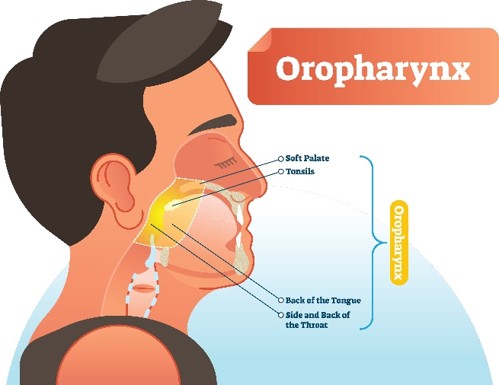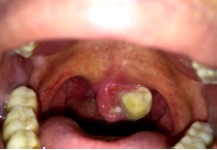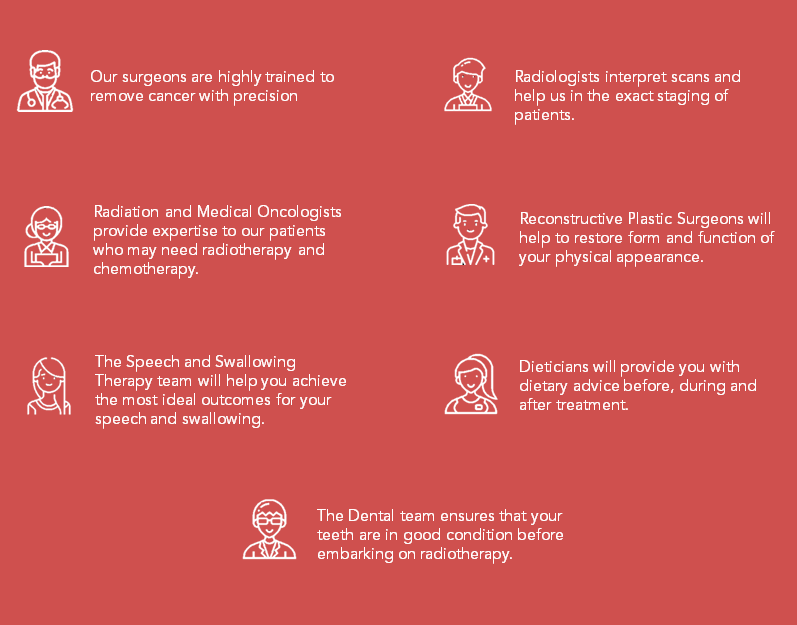Overview
The diagnosis of cancer in a patient is often accompanied by disbelief and feelings of helplessness. The feeling of helplessness may be partly due to a lack of knowledge and awareness of the many treatment options available.
This series of brochures will provide you information on common head and neck cancers, focusing on the following:
- Common causes and symptoms
- Investigations required
- Treatment options available
For more information about the condition and treatment options, please consult a head and neck cancer specialist.
Cancer Patient Services
The Department of Otorhinolaryngology (Ear, Nose, Throat) in Tan Tock Seng Hospital offers the following services in relation to head and neck cancers:
- Diagnosis of the cancer
- Appropriate staging of the cancer
- Treatment – every cancer patient is discussed with a multi-disciplinary team to identify the most ideal evidence-based treatment
- Long-term follow up and monitoring to ensure the cancer does not return
Oropharyngeal Cancer
The oropharynx is the back of the throat that includes the back of the tongue, the tonsils and the soft palate with uvula.

Main Causes
- Smoking
- Execessive alcohol consumption
- There is association between Human Papilloma Virus (HPV) and oropharyngeal cancer with having previous multiple sexual partners and engaging in oral sex
Common Symptoms
- A lump at the back of the throat
- Difficulty or pain in swallowing
- Neck lumps due to enlarged lymph glands

Cancer arising from the uvula portion of the oropharynx.
Examination and Tests
Your doctor will perform a nasoendoscopy, where a fibreoptic camera is passed through your nose to obtain a view of the back of the tongue and throat.
Two types of investigations are required:
- Biopsy of the oropharynx to determine the presence of cancer. This is usually done under general anaesthesia.
- Scans to determine the spread of the disease. Commonly-performed scans include:
• Magnetic Resonance Imaging (MRI) scan of the neck
• Positron Emission Tomography (PET) scan of the whole body
Treatment
The treatment of oropharyngeal cancer depends on the stage of disease:
- Early stage: Either surgery OR radiotherapy
- Advanced stage: Surgery and chemoradiotherapy OR radiotherapy
Cancer Care Management
We work closely with other medical specialists and allied health professionals to ensure the most ideal

Our aim is the same as yours – to fight off the cancer and return you to an ideal quality of life.
